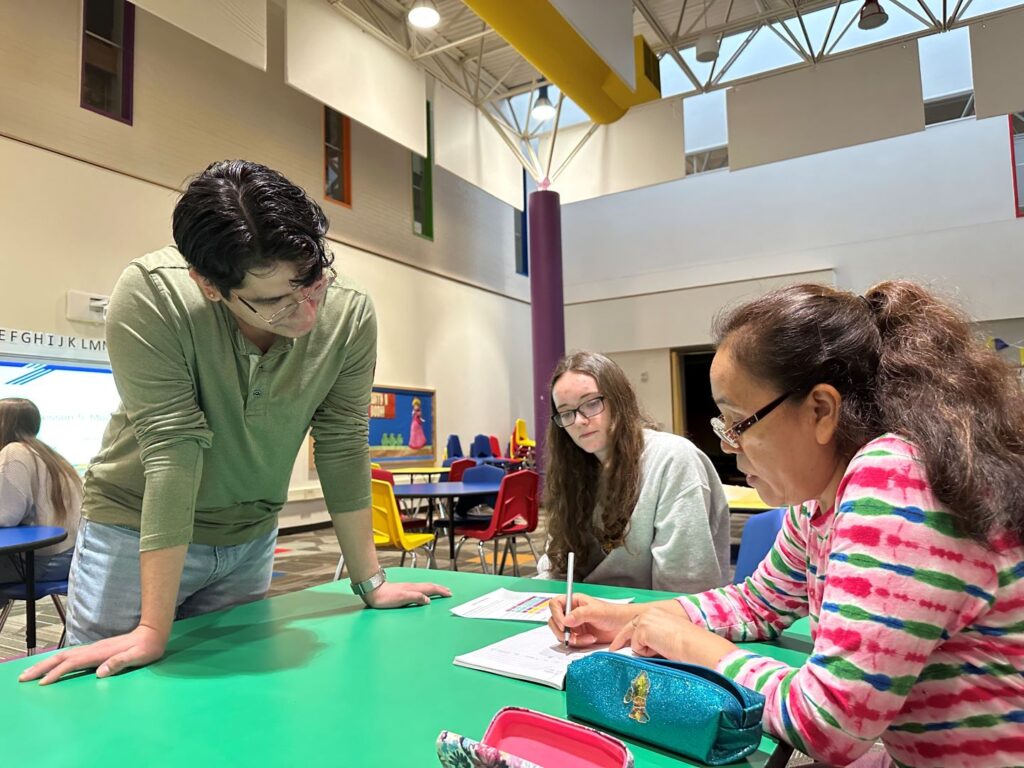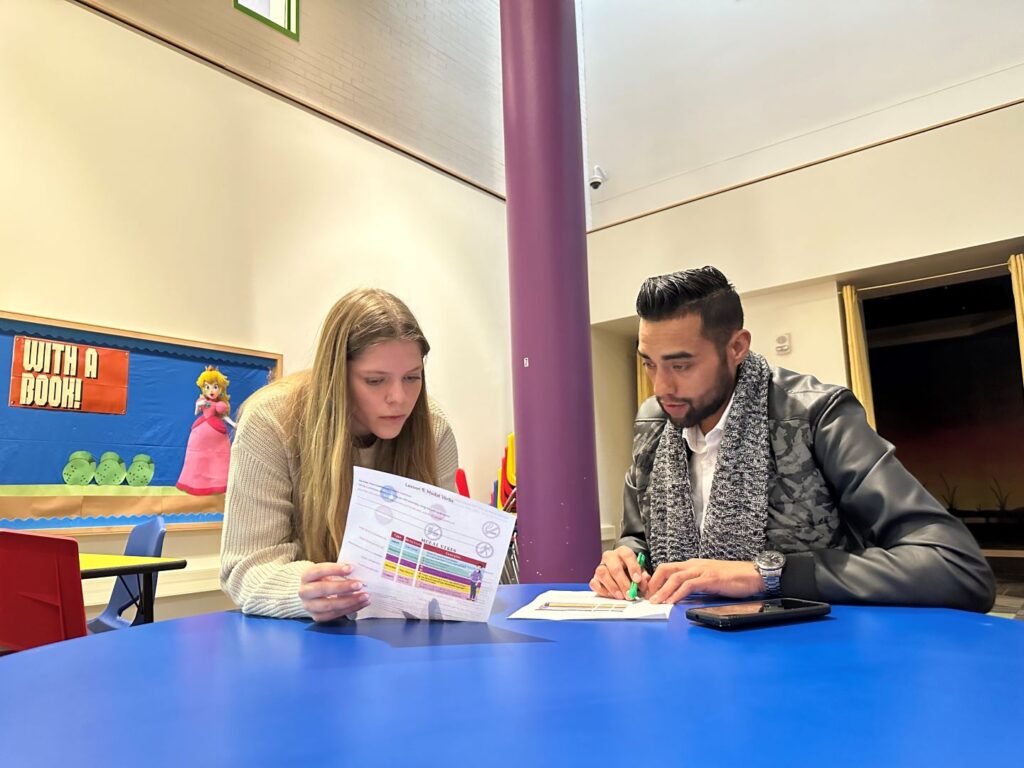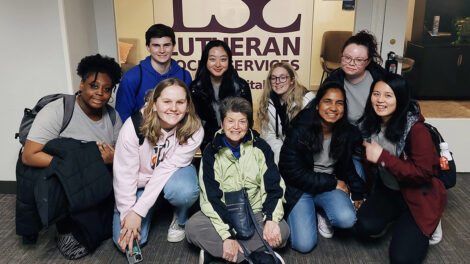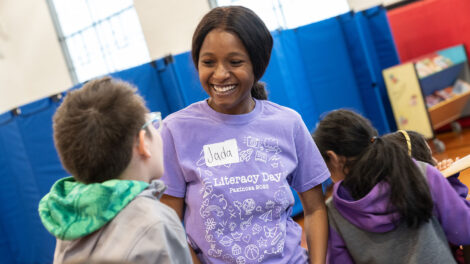Student tutors bring language skills to Paxinosa Elementary School
By Bryan Hay
For the past year on Wednesday nights, spread out in the bright, colorful library at Paxinosa Elementary School in Easton’s West Ward, a multidisciplinary, bilingual group of Lafayette students has helped Spanish-speaking parents learn English.
Working through the Landis Center for Community Engagement‘s Construyendo Puentes program, the students have joined together out of a sense of civic engagement to offer their time and skills to support families in Easton by teaching them valuable language skills.
During a recent gathering, the lesson plan focused on modal verbs—will, would, should, may, can, could, might, must—and their importance in understanding public signage and directions.
“It’s rewarding to teach others English, people who may otherwise not have an opportunity to participate in a program such as this,” says Shelby Okstein ’26 (sociology and anthropology).
“And to be part of the community by helping others is important,” she adds. “This experience is also improving my Spanish skills.”

Alexander Alvarez ’23 and Shelby Okstein ’26 help out with a lesson.
As a civil engineering major, Alexander Alvarez ’23 likens the tutoring to building bridges to close the gap between Spanish speakers and English speakers at Paxinosa.
“I think it’s important because, ever since I was little, I’ve always been the translator in my family,” says Alvarez (civil engineering, psychology minor), who grew up in East Harlem. “I’ve always been translating a lot of stuff like tax and government documents for my parents, aunts and uncles, and my siblings.”
“Now I’m happy to give the adults at Paxinosa an opportunity to learn and to know that they’re not too old to learn something,” he says.
As Alvarez reviewed conjugations and pronunciations, and engaged the parents with reinforcing exercises, Tara Amidon ’25 (government and law, international affairs, minor in Spanish) moved from table to table to check their progress and help answer questions.

Tara Amidon ’25 assisting with a modal verb exercise.
“It’s important for students to get off campus and volunteer in our communities,” she says. “Giving back is part of the Lafayette tradition. It’s great to see the progress being made week to week.”
Jodi Fowler, assistant director, civic leadership programs at Landis, credits Alvarez and Amidon for listening to feedback from the parents and working diligently to construct lesson plans that would meet the individual learning needs of each of the families they worked with.
“This kept the program strong and families engaged throughout the duration of the semester,” she says. “The mutual learning that took place week after week is what made this program both valuable and successful, and we are happy to have the opportunity to work with our community in this way.”
While parents worked on their English lessons and practiced modal verbs, their children waited in the cafeteria where Sofia Aguayo ’26 (government and law, Spanish) kept them entertained playing board games.
Givel Ledesma, the family liaison at Paxinosa, expressed her gratitude to the Lafayette students for taking time out of their schedules to help support families at Paxinosa.
“It’s wonderful what they’re doing here. Learning a second language can be challenging, but these Lafayette students are helping make the process a little easier,” she says.
An additional benefit to the Lafayette outreach is imparting to the parents that a college education is not out of reach for their children, Alvarez notes.
“We’re helping them to know that their kids, after graduating from high school, have opportunities to get a four-year degree at Lafayette or another college or university,” he says. “They also know that Lafayette is here for them and doesn’t forget about the community we call home.”

